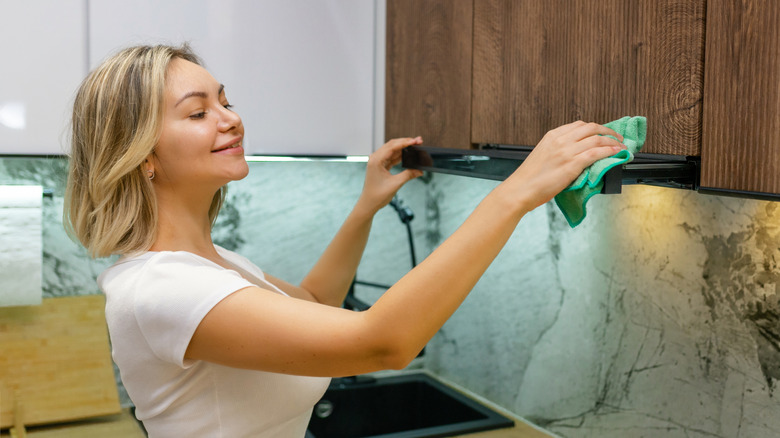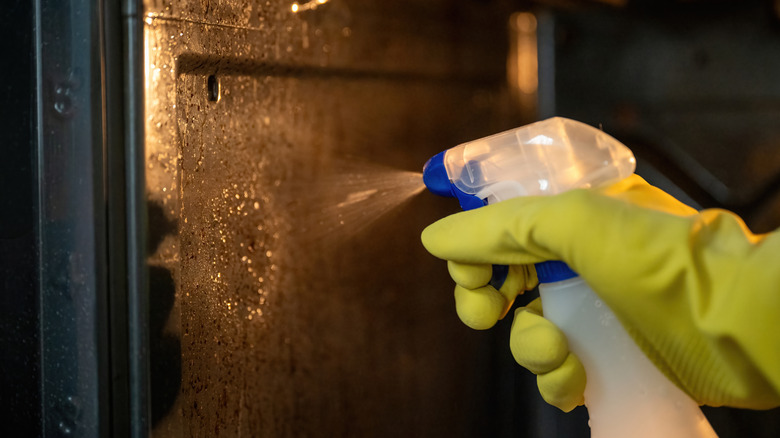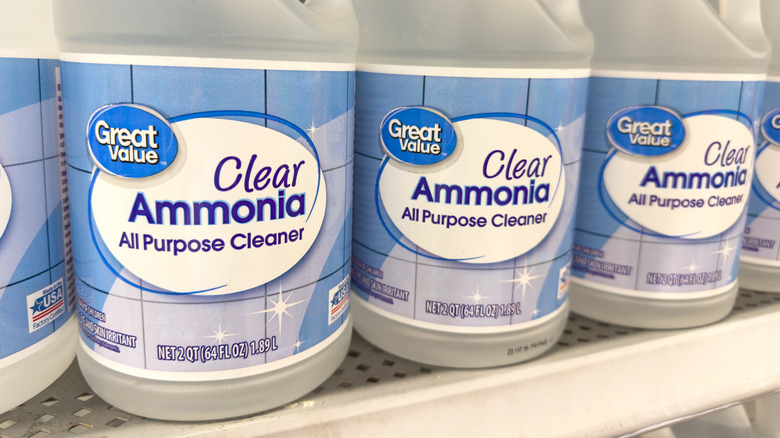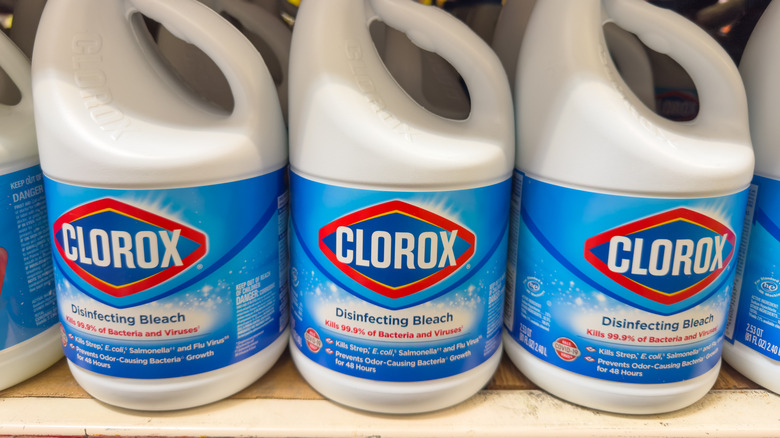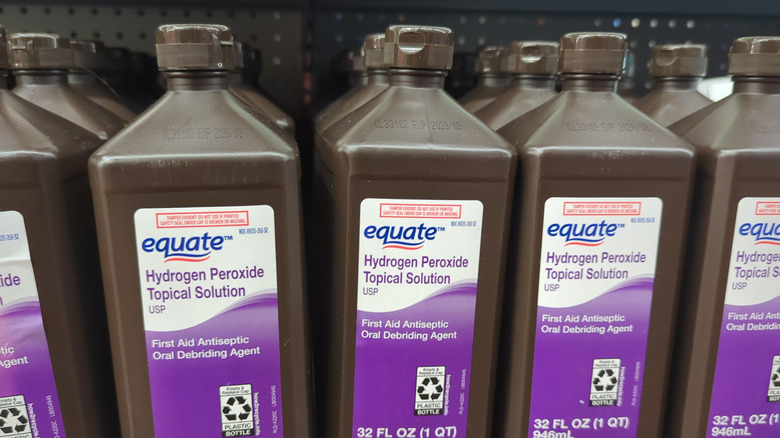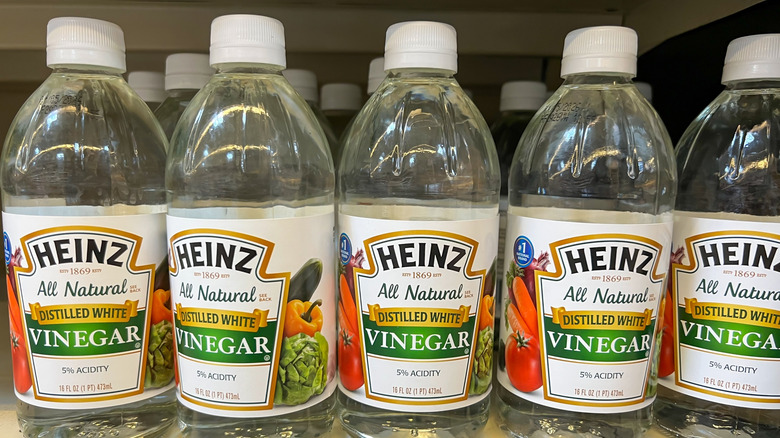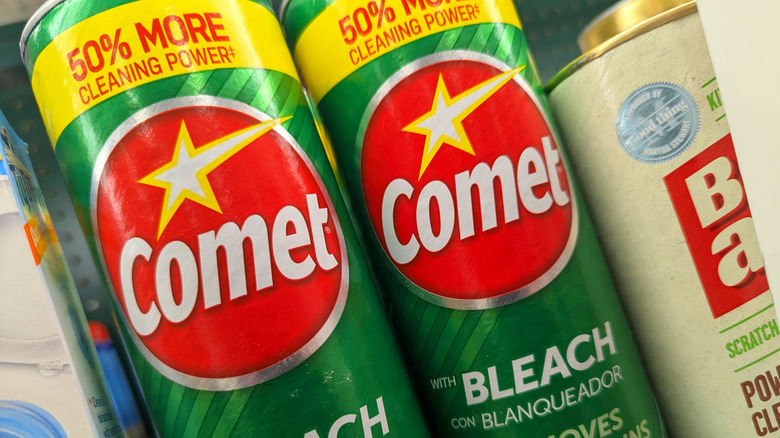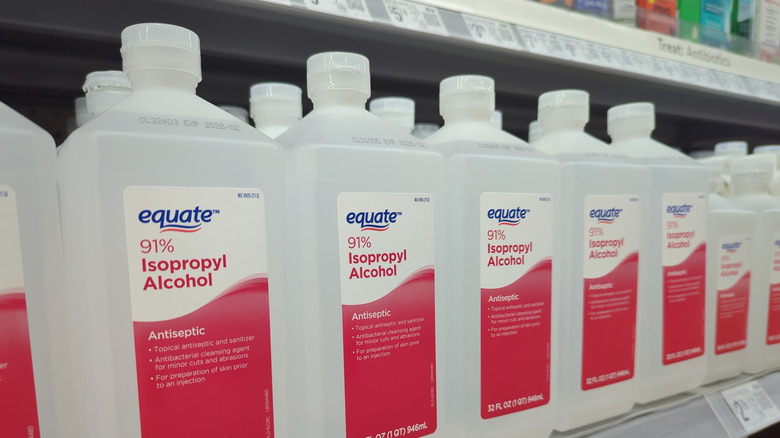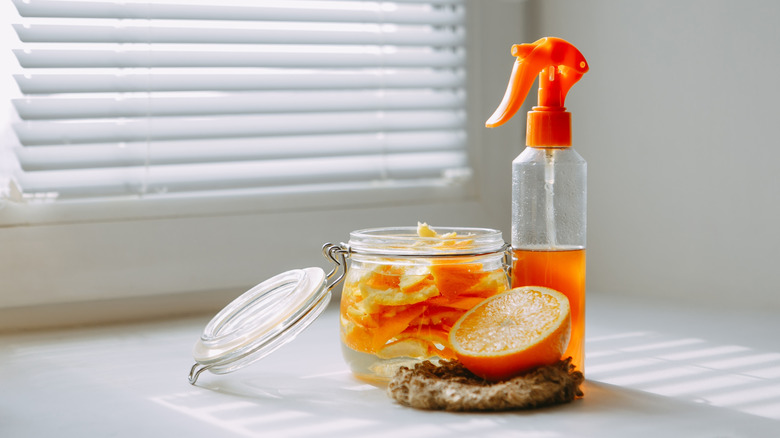8 Popular Cleaners That Are Destroying The Finish On Your Kitchen Cabinets
Your cabinets are the focal point of your kitchen, equal parts beautiful and functional. While natural wood is gorgeous in its own right, the finishes add color, depth, and most importantly, a layer of protection to your wood cabinets. However, your stunning kitchen cabinets are subject to food splatters, grease, and sticky fingers, so regular maintenance is essential to keep them looking their best. When choosing a cleaner, the most important thing to consider is protecting the wood finish. Unfortunately, wood finishes are delicate, which limits the products you can use quite a bit. The best cleaners for regular maintenance on your cabinets are soap and water or a wood-specific cleaner. You should also always use a soft cloth.
Many popular household cleaners actually do more harm than good to your kitchen cabinets. Cleaners containing harsh chemicals, abrasive materials, or acids are not safe to use on kitchen cabinets. Even unassuming household cleaners like hydrogen peroxide and white vinegar can cause damage to finished wood cabinets with repeated use. Avoiding these will help keep your kitchen cabinets looking brand new for years to come.
Harsh degreasers
Your kitchen cabinets will inevitably accumulate a greasy residue after many nights of cooking. You want to restore them to their original shine quickly and easily, but you should fight the temptation to use a harsh degreaser. Cleaners like mineral spirits and oven cleaner are meant to break down tough grease and burnt-on stains. Even if they're diluted, these cleaners can still break down delicate wood finishes, so they're too corrosive to use on kitchen cabinets.
Ammonia
Ammonia is great for cutting through grease on glass surfaces, but it's not a great option for your kitchen cabinets. Unfortunately, ammonia can negatively react with wood stains and varnishes, causing damage and discoloration. You should avoid using pure ammonia and keep an eye out for it in the ingredients of popular cleaning products. It's not always obvious, but many products, like window cleaners, contain ammonia.
Bleach
You might want to turn to bleach for its disinfectant properties. It's true that bleach will sanitize your cabinets from illness-causing germs. However, it's not worth the damage to your wood finish when there are gentler ways to disinfect. Bleach contains sodium hypochlorite, a harsh chemical that can easily strip the finish off your cabinets. You should avoid using pure bleach and bleach products, such as wipes and sprays.
Hydrogen peroxide
You probably keep hydrogen peroxide in your first aid kit. It has antiseptic properties just like bleach. However, cleaning your kitchen cabinets is not one of the ways you should use hydrogen peroxide in your home. The same way that bleach can brighten up your white clothes, hydrogen peroxide can lighten your wood cabinets. Hydrogen peroxide can be useful for removing stains from wood. To do so, you can use a low concentration and leave it on for no longer than a couple of minutes. For regular cleaning, though, it's best to choose a more suitable cleaner.
White vinegar
You can count on white vinegar to break down grease and grime in kitchens and bathrooms thanks to its high acetic acid content. It's an effective natural alternative to synthetic cleaners, but with a pH of around 2.4, white vinegar is too corrosive to use on your kitchen cabinets. If you can, avoid using both white vinegar and vinegar-based commercial cleaners to clean your cabinets.
Abrasive cleaners
Any cleaner with a gritty texture will scratch the surface of your kitchen cabinets. These scratches may not be visible the first few times you clean your cabinets, but over time, the wood finish will become worn down. Commercial powder cleaners and homemade baking soda cleaners are both damaging to wood surfaces. While you're considering cabinet care, ditch the scouring pad and switch to a soft microfiber cloth.
Alcohol-based cleaners
Alcohol is another harsh disinfectant that can easily break down wood finishes over time. Frequent use of rubbing alcohol and alcohol-based cleaners can lead to hazing, discoloration, and damage to your kitchen cabinets. Alcohol is also quite drying, which in the worst cases can lead to wood splintering. Check the label on commercial window cleaners, too. They may also contain alcohol, even if it's not obviously advertised.
Citrus-based cleaners
Nothing says "clean" like a kitchen that smells lemony fresh. Homemade cleaner is one of many uses for citrus around the house. But while citrus-based cleaners smell delightful, those that are high in citric acid are too harsh to use on your wood cabinets. Over time, the acid can strip away the wood's protective coating, leaving the wood vulnerable to damage. If you can't resist the fresh scent of citrus, you can add a few drops of citrus essential oil to your cleaner for an acid-free aroma.
